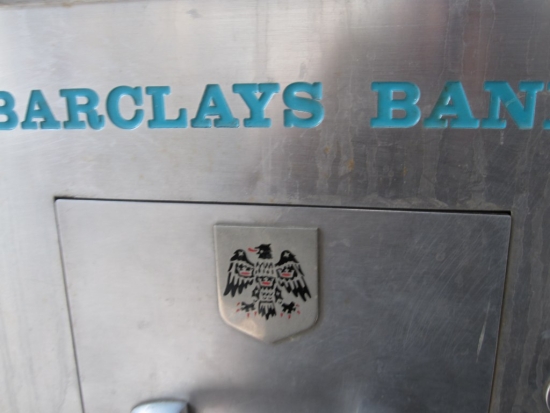Barclays Bank has said it will make 3,700 redundancies following a strategic review, as it aims to cut costs by £1.7bn. Nearly half of those job losses will come at its investment bank.

Barclays also reported a fall in pre-tax profit to £246m in 2012, from £5.9bn in 2011, after setting aside compensation for miss-sold products and a loss on the value of its own debt.
The boss of Barclays Antony Jenkins told the BBC: “It will take years before people change their impression of us.”
Of the job cuts, 1,800 will come from its investment and corporate banking, with the majority of job losses in Asia, and 1,900 will come from its European business and retail banking.
Barclays, which currently employs 140,000 staff – said a small number of the redundancies would be in the UK.
The bank is looking to rebuild its reputation after a run of damaging incidents. It was fined £290m in 2012 for attempting to rig the Libor interest rate, and has also been caught up in the industry-wide mis-selling scandals involving interest rate investment products and payment protection insurance (PPI).
On an adjusted basis, profits rose by 26 per cent to £7.05bn, in line with city analyst’s expectations.
Barclays has been shaken by the Libor and mis-selling scandals and Mr Jenkins, who took over from Bob Diamond as chief executive in August, has vowed to transform the banking group.
The bank set aside £1.6bn to reimburse customers mis-sold PPI and £850m for those mis sold interest rate hedging products.
Mr Jenkins told the BBC: “You should not sell products to customers that are not in their interests.
“I’ve been very clear that we have to run this business in a way that delivers for customers and clients.”
The extra provision from Barclays for PPI, which includes £600m announced by Mr Jenkins earlier this month, takes the combined total for overall PPI compensation for the UK banking industry to £13.6bn.
Barclays also wrote down £4.6bn on the value of its own arrears.
The bank reinforced the closing of its Structured Capital Markets business, which helps customers avoid tax.
It said the 3,700 job cuts, which will have effect this year, would result in a reorganisation charge of close to £500m in the first quarter of 2013.
The average bonus it paid last year fell 13 per cent to £13,300, while the average bonus paid to staff at its investment bank fell 17 per cent to £54,100.
Barclays increased its dividend as a sign of increased confidence to shareholders. The dividend on ordinary shares rose from 6p per share to 6.5p – an increase of 8 per cent.
However the dividend payout of £733m was still overshadowed by the value of bonuses paid or put aside for staff, predominantly in the investment bank.
The overall bonus pool, though down by 14 per cent from 2011, still totalled £1.85bn.
Barclays also announced that its compensation ratio – staff pay as a proportion of net revenues – had dropped from 42 per cent to 38 per cent.
The high street bank said that while this was progress, it was “not the destination”, as it believes a ratio in the mid-30s is a maintainable position in the medium term.
Jenkins said in his review that he planned to focus his attention on investment in Africa, the UK and the US, while reducing the bank’s presence in Europe and Asia.
He also plans to cut back Barclays’ investment bank.
However, in 2012 the investment bank continued to be very cost-effective for the business, with statutory profits growing 37 per cent to £4.06bn.
Profits at its UK business and retail banking division fell 71 per cent to just £292m after PPI and interest rate swap provisions, but increased 4 per cent to £1.47bn on an adjusted basis.
Equity analyst at Hargreaves Lansdown, Keith Bowman said that while Barclays faced “a series of legacy issues” such as Libor, and increased capital and regulatory requirements, things were looking up for the bank.
He said: “Significant management changes have been implemented, a universal banking business model offers its own diversification attractions, whilst cyclical economic exposure and the lack of government ownership also appeal.
“For now, despite a 60% plus gain in the share price over the last six months alone, the new chief executive looks to have done enough, with analyst opinion remaining positive in tone.”
Previous Post
Post Office Announces New Spate of High Street Closures